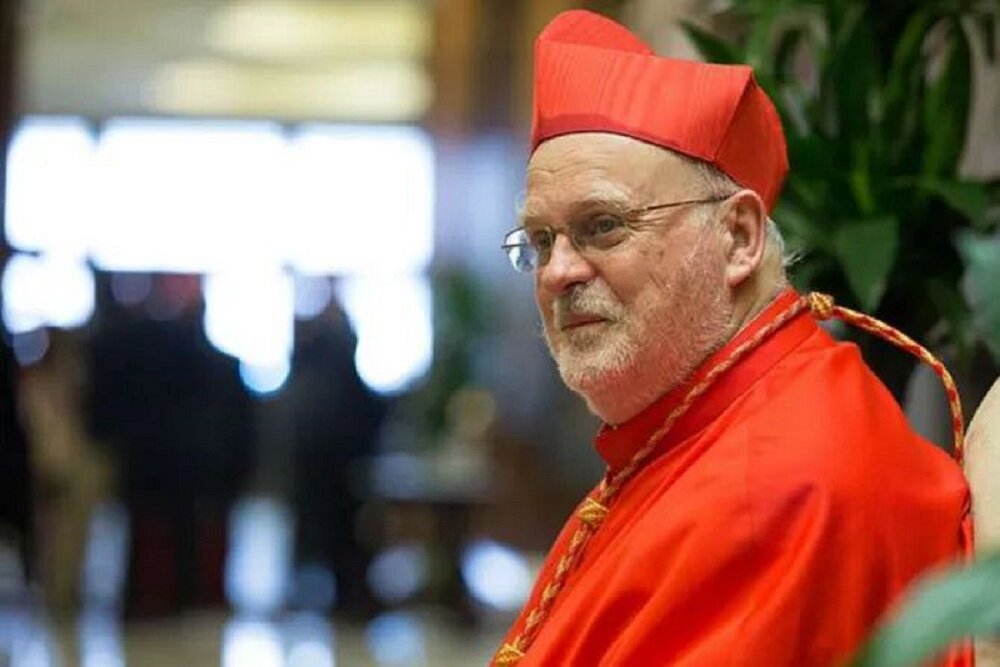Hawzah News Agency – Nordic Catholic bishops issued an open letter on Wednesday expressing alarm at the direction of the German “Synodal Way.”
In the March 9 letter, they cautioned against “capitulation to the Zeitgeist” and “impoverishment of the content of our faith,” reported CNA Deutsch, CNA’s German-language news partner.
While acknowledging the challenges facing the Catholic Church in Germany, they said that “the orientation, method, and content of the Synodal Path of the Church in Germany fill us with worry.”
The Synodal Way is a multi-year process addressing the way power is exercised in the Church, sexual morality, the priesthood, and the role of women in the wake of a devastating clerical abuse crisis in Germany.
The Nordic bishops published their letter after Synodal Way participants voted in favor of draft texts calling for the abolition of priestly celibacy in the Latin Church, the ordination of women priests, same-sex blessings, and changes to Catholic teaching on homosexuality.
“Throughout the world, a number of Catholics ask questions about the lifestyle and formation of priests, the role of women in the Church, the range of views on human sexuality, etc,” the Nordic bishops wrote.
“In the legitimate search for answers to the questions of our time, we must nonetheless respect boundaries set by topics that stand for unchangeable aspects of the Church’s teaching.”
“It has ever been the case that true reforms in the Church have set out from Catholic teaching founded on divine Revelation and authentic Tradition, to defend it, expound it, and translate it credibly into lived life — not from capitulation to the Zeitgeist. How fickle the Zeitgeist is, is something we verify on a daily basis.”
The Bishops’ Conference of the Nordic Countries brings together the Catholic bishops of Sweden, Denmark, Norway, Finland, and Iceland.
The open letter, addressed to German bishops’ conference chairman Bishop Georg Bätzing, was signed by Church leaders including Cardinal Anders Arborelius of Stockholm, Bishop Erik Varden of Trondheim, Bishop David Tencer of Reykjavik, and Nordic bishops’ conference president Bishop Czesław Kozon of Copenhagen.
Sister Anna Mirijam Kaschner, the conference’s general secretary, also signed the open letter. The German religious is a member of the Missionary Sisters of the Precious Blood.
The Nordic bishops’ intervention follows the publication of a letter last month by the president of Poland’s bishops’ conference expressing “fraternal concern” over the “Synodal Way.”
In the almost 3,000-word letter to Bishop Bätzing, Archbishop Stanisław Gądecki questioned whether the initiative was rooted in the Gospel.
In their roughly 1,000-word letter, the Nordic bishops wrote: “The global synodal process has aroused great expectations. We all hope for a revitalization of Catholic life and of the Church’s mission. However, there is a risk that we, in so far as we stay enclosed within paradigms of process thinking and structural change, end up conceiving of the Church as a project, the object of our agency.”
They said that the image of the Church as the People of God on pilgrimage should be complemented by other images drawn from Catholic tradition, especially the Church as “a mystery of communion.”
“We find that Catholics who constitute and carry the life of our parishes and communities instinctively sense this sacramental mystery but are not necessarily the ones inclined to fill in questionnaires or participate in group discussions,” they wrote.
“Let us not forget, in the context of the synodal process, to attend carefully to their witness also.”
They went on: “Right now, when Europe, subject to deep divisions, is threatening to explode, we ascertain: we need a higher criterion of unity. Christ alone is our hope!”
“In his name, the Church is called to be ‘a lasting and sure seed of unity, hope and salvation for the whole human race’ (Lumen gentium, 9).”
“Only if the Church’s life ad intra [internally] is rooted in Christ, only if we live out of the fullness of his revelation, shall we measure up to this vocation. We can hardly expect a new fullness of Catholic vitality to follow from impoverishment of the content of our faith.”


Your Comment